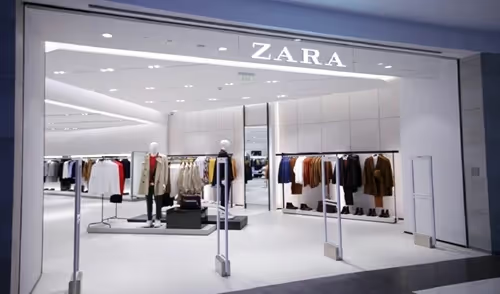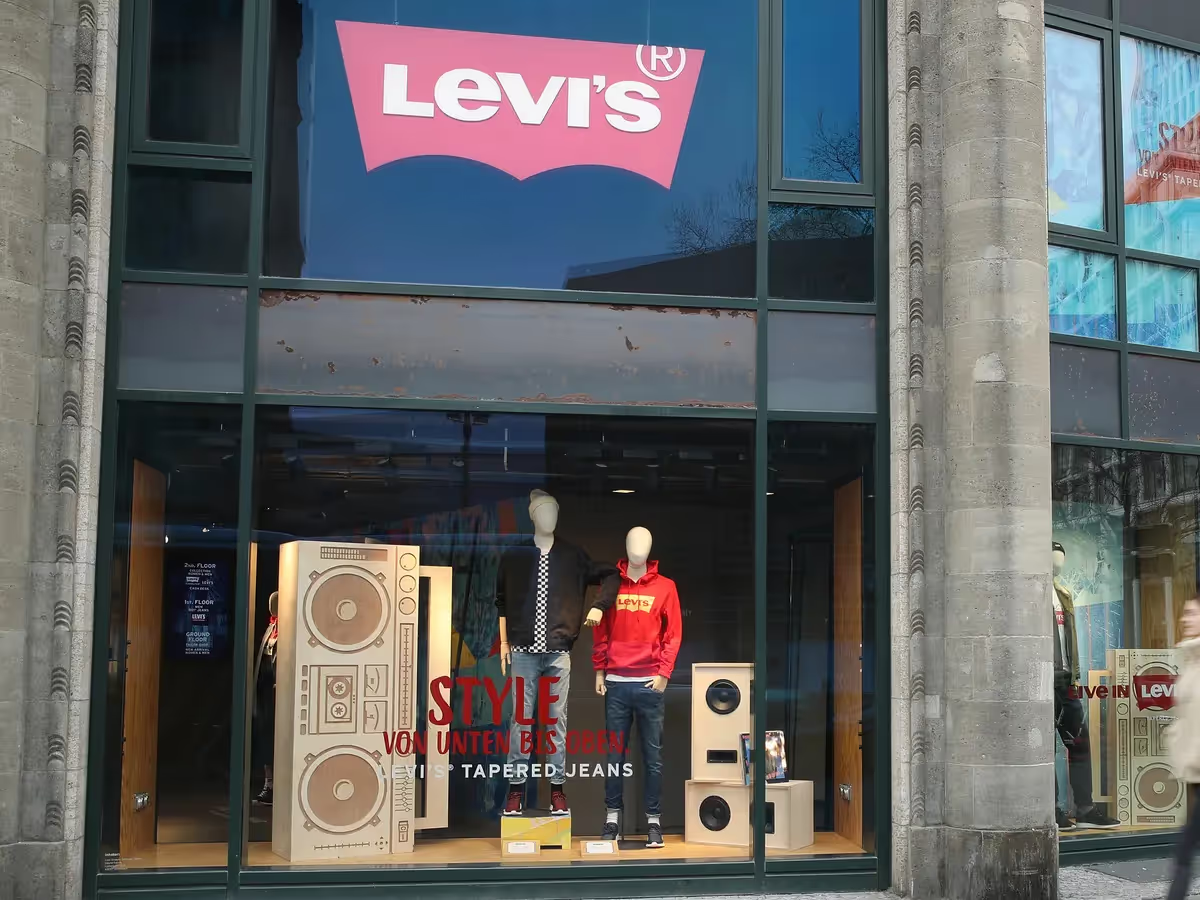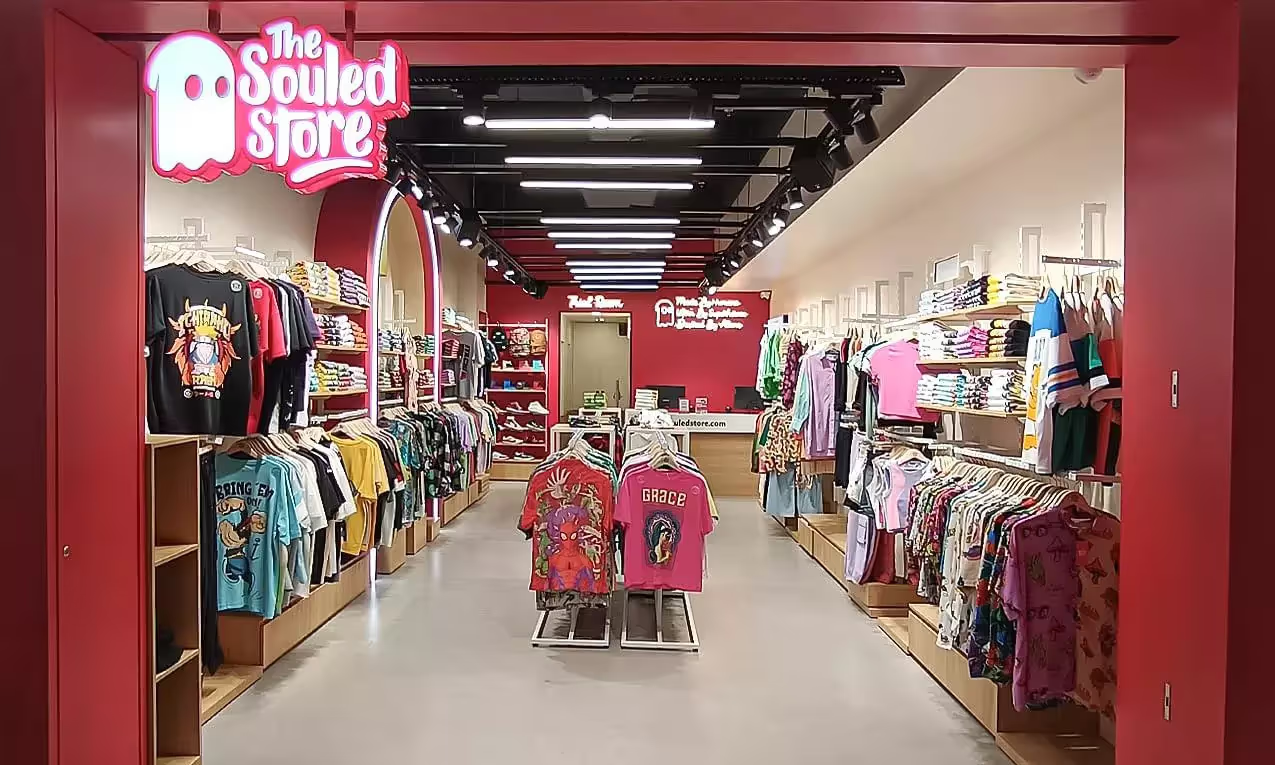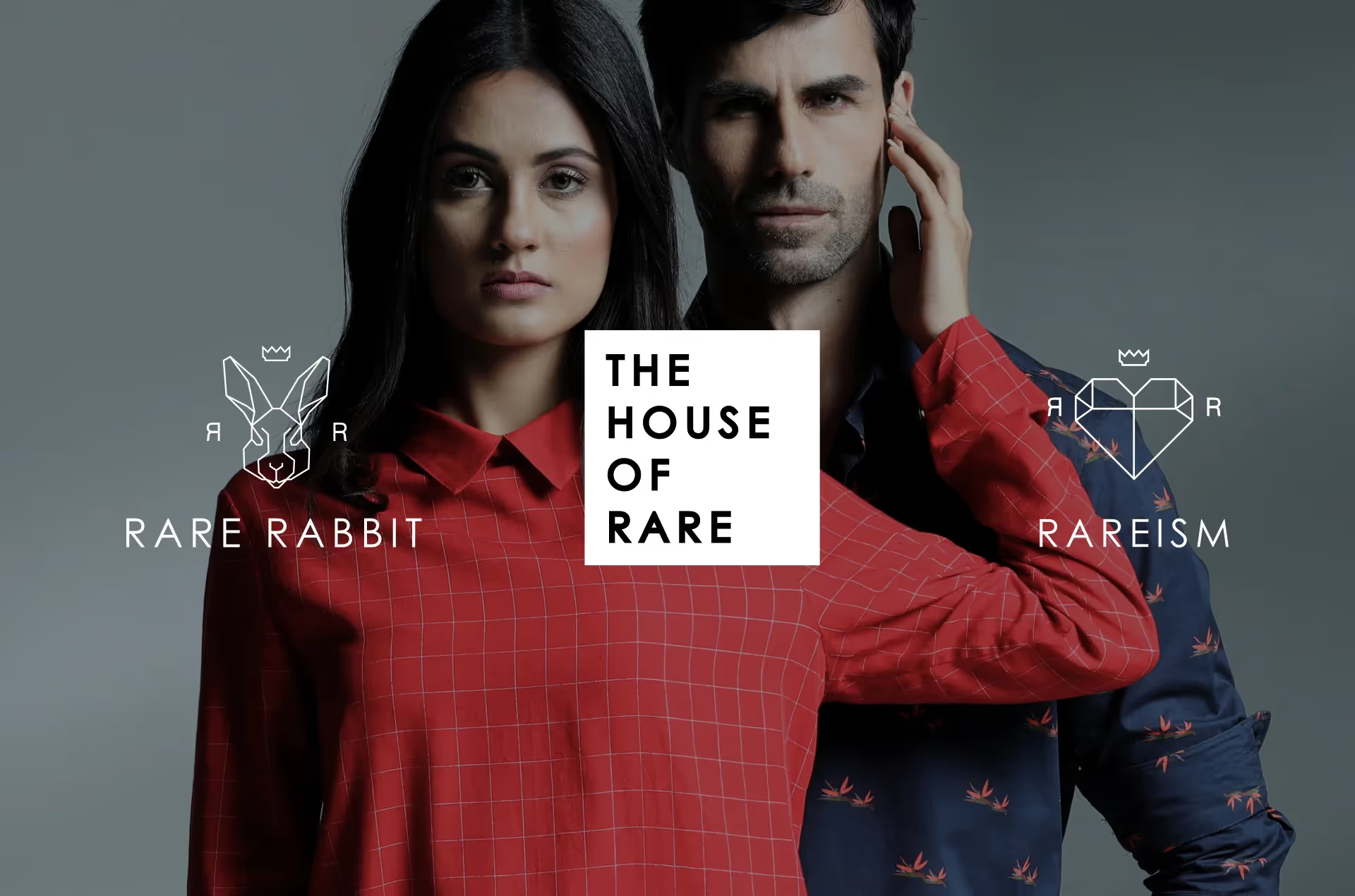Insights, Analysis and more
Feed your brain! Discover some mind-blowing facts and figures about dropshipping, ecommerce, digital marketing, social media and beyond.



Feed your brain! Discover some mind-blowing facts and figures about dropshipping, ecommerce, digital marketing, social media and beyond.




India's fashion industry has transformed into a powerhouse of innovation and growth, with the apparel market valued at $115.7 billion in 2024 and projected to reach $171.6 billion by 2034, exhibiting a compound annual growth rate of 4%. The fast fashion segment alone is expected to grow from $10 billion in 2024 to $50 billion by 2031, reflecting a CAGR of more than 20%. With India's e-commerce fashion market generating $20.10 billion in 2025 and expected to show an annual growth rate of 15.19% through 2030, the fashion landscape has never been more dynamic.
Women's apparel continues to dominate the market with projected revenues of $53.13 billion, while men's fashion and emerging streetwear segments are experiencing unprecedented growth. Direct-to-consumer (D2C) brands and sustainable fashion initiatives are also coming up.
Let’s check out the top 10 fashion brands in India now.

H&M leads India's fast fashion sector with $380 million in revenue for FY24, representing an 11.4% year-on-year growth. The Swedish retailer operates 64 stores across India and has successfully captured the aspirational consumer segment seeking trendy clothing at accessible prices.
H&M's success in India stems from its ability to quickly adapt global trends for local consumers while maintaining competitive pricing. The brand's strategic focus on digital expansion and omnichannel retail has enabled it to reach tier-2 and tier-3 cities, contributing significantly to its growth trajectory. Despite facing challenges from increased competition and higher operational costs, H&M continues to dominate India's fast fashion market.

Zara India reported $323 million in revenue for FY25, though growth has slowed to less than 1% compared to 8% in the previous year. Operating through a joint venture between Spanish Inditex and Tata Group, Zara runs 23 stores across 13 cities in India.
If you appreciate high-quality fast fashion with European design sensibilities, Zara remains a preferred choice despite its premium pricing. The brand's focus on tier-2 and tier-3 market expansion indicates continued growth potential in India's developing fashion markets.

Adidas India achieved remarkable growth in 2024 with revenues reaching $307 million, driven by strong demand for sportswear and athleisure. The German sportswear giant has successfully positioned itself as the official sponsor of the Indian cricket team, providing immense brand visibility and cultural connection.
The company's focus on local production, with plans to increase from 30% to 35-40% by 2024, demonstrates commitment to the Indian market while reducing costs and improving supply chain efficiency. Adidas operates 760 franchise retail stores across India, with plans to expand further into tier-2 and tier-3 cities through partnerships.

Levi's India has established itself as the sixth-largest global market for the iconic denim brand, with revenues of $138 million in 2024. Operating 381 stores across India, Levi's has successfully maintained its premium positioning while expanding accessibility through diverse price points.
The brand's success stems from its deep understanding of Indian consumers' preference for high-quality denim and casual wear. Levi's has adapted its global heritage to Indian sensibilities while maintaining the authentic American denim culture that defines the brand.
Levi's continues to innovate with sustainable denim production and water-saving technologies, appealing to environmentally conscious consumers while maintaining its reputation for durability and style.

The Souled Store has emerged as a pop culture fashion phenomenon, achieving $44 million in revenue in FY24 with an impressive 54.5% year-on-year growth. Founded in 2014, this Mumbai-based D2C brand has successfully capitalized on India's growing pop culture enthusiasm.
Operating 18 stores across India, The Souled Store generates 98.6% of its revenue from product sales, including apparel, footwear, accessories, and merchandise inspired by superheroes, movies, and TV shows. The brand's strategic expansion includes plans to reach 200 stores by 2026.
You can see The Souled Store representing the new generation of Indian fashion brands that successfully blend entertainment culture with apparel, creating strong emotional connections with millennial and Gen Z consumers.

Rare Rabbit has demonstrated exceptional growth, with revenues reaching $75 million in FY24, more than doubling its profit from $32 million to $75 million in the previous year. Founded in 2015 by Manish and Akshika Poddar, this Bengaluru-based brand focuses on premium men's fashion.
The House of Rare operates three brands – Rare Rabbit, women's brand Rareism, and everyday wear brand Articale – creating a comprehensive fashion ecosystem. The company's success stems from its focus on quality, distinctive designs, and strategic retail expansion with plans to add 10 more stores in the coming year.
Rare Rabbit's commitment to premium positioning and design excellence has earned it a loyal customer base willing to pay premium prices for unique, high-quality fashion pieces.

BIBA continues to dominate the ethnic wear segment with estimated revenues of $60 million, maintaining its position as a trendsetter in Indian traditional fashion. Founded in the late 1980s, BIBA pioneered readymade ethnic wear and has consistently evolved with changing consumer preferences.
Operating 180 exclusive brand outlets, BIBA has successfully bridged the gap between traditional Indian aesthetics and contemporary fashion needs. The brand's online presence through BIBA.in generated approximately $18 million in eCommerce net sales revenue in 2023.
You will find BIBA's strength lies in its deep understanding of Indian women's ethnic wear preferences, offering everything from daily wear kurtas to festive occasion outfits at accessible price points.

Fabindia represents the intersection of traditional Indian craftsmanship and contemporary retail, with revenues of $85 million in 2025. Operating 357 stores including international outlets across 7 countries, Fabindia has successfully created a global market for authentic Indian textiles and clothing.
The brand's commitment to supporting rural artisans and traditional weaving techniques has created a sustainable business model that benefits both consumers seeking authentic products and craftspeople preserving heritage skills. Fabindia's current website lists 1,370 women's clothing and accessories products on sale, demonstrating the breadth of its product portfolio.

Allen Solly, part of the Aditya Birla Fashion portfolio, generates approximately $255 million in revenue as part of the group's ambitious plan to achieve billion-dollar status for its key brands. Operating 281 stores across India, Allen Solly has established itself as a leading casual and semi-formal wear brand.
The brand's "Friday Dressing" campaign successfully positioned it as the go-to choice for smart casual wear, particularly among working professionals seeking comfortable yet stylish clothing. Allen Solly's integration with Aditya Birla's extensive retail network provides significant distribution advantages. You can expect Allen Solly to continue its growth trajectory as part of Aditya Birla Group's strategy to build India's first portfolio of billion-dollar fashion brands by 2035.

While primarily an e-commerce platform, Myntra's dominant position with $790 million in revenue makes it India's most influential fashion retail entity. With a 30-35% market share in India's fashion e-commerce segment and 200 million monthly active users, Myntra has fundamentally changed how Indians shop for fashion.
Myntra's success stems from its curated approach to fashion retail, combining international brands with domestic labels and emerging D2C brands. Myntra's influence extends beyond retail to trend forecasting and brand incubation. It has become crucial platform for both established and emerging fashion brands seeking Indian market access.

Brands like Almost Gods, founded by Kobi Walsh and Dhruv Khurrana in New Delhi, bridge streetwear with artistic expression through collections like "Fruit Shop at the End of the World". Jaywalking, created by Jay Jajal, has gained celebrity endorsements from Ranveer Singh and represents gender-inclusive fashion inspired by hip-hop culture.
BISKIT challenges conventional fashion boundaries with gender-neutral designs that explore themes of technology and philosophy. Midnight LAW, established in 2018, celebrates vintage and retro aesthetics with bold graphic designs influenced by punk and space-age culture. Urban Monkey has established itself as India's original streetwear brand, offering hats, sneakers, hoodies, and oversized fits that embody hip-hop and skate culture.
Bonkers Corner appeals to Gen Z consumers with oversized T-shirts and bold graphics celebrating street culture. Snitch combines modern minimalism with edgy streetwear, introducing new drops weekly to match global fashion trends. W.T.F stands out for its commitment to sustainability, using upcycled fabrics and ethical production processes while maintaining bold, experimental designs.
The streetwear segment, while currently small at $5 million in revenue, is experiencing rapid growth as Gen Z consumers embrace bold, statement-making fashion choices.
Indian streetwear marketplaces like Gofynd, Capsul, SoleSearch, and Mainstreet Marketplace have created platforms specifically for streetwear enthusiasts, fostering communities around shared fashion interests. These platforms emphasize authenticity, limited-edition releases, and cultural connection rather than mass-market appeal.

The D2C market for apparel in India is expected to grow by 20% annually, reaching $10 billion by 2025. Brands have embraced digital tools like virtual try-ons, 3D modeling, and AI-driven recommendations to enhance online shopping experiences. This digital transformation has enabled hyper-local brands to cater to specific regional tastes while building national presence.
Snitch reported significant growth with plans to launch 100 stores by 2025, demonstrating how digital-first brands are embracing omnichannel strategies. The Souled Store expanded from pure online retail to 18 physical stores with plans for 200 locations by 2026. Urban Monkey generates $45 million in revenue through its combination of online sales and strategic retail partnerships.
Indian fashion brands increasingly prioritize sustainability and ethical production practices. The luxury fashion market, valued at $9.37 billion in 2024, is expected to reach $15.13 billion by 2033, with sustainability being a key driver. Consumers are favoring brands that promote fair trade, cruelty-free production, and carbon-neutral operations.
Fabindia continues to lead in ethical sourcing through direct partnerships with artisan groups and rural clusters. KOTN maintains B Corp certification with transparent supply chain practices. Encircled produces all garments within 35 kilometers of its Toronto headquarters, ensuring fair wages and environmental responsibility.
India's fashion market is projected to reach $130-150 billion by 2030, growing at 10-12% CAGR, with branded apparel accounting for the majority of spending. The athleisure segment alone is estimated to reach $3.2 billion by 2032 with 5.2% annual growth. E-commerce fashion is expected to contribute $40.77 billion by 2030.
Regional diversity continues to influence market opportunities, with states like Rajasthan maintaining strong traditional wear demand while metropolitan areas drive urban fashion trends. The southern states' significant contribution to textile manufacturing creates opportunities for vertical integration and cost optimization.
You should recognize that India's fashion industry success stems from its ability to balance commercial growth with cultural authenticity and environmental responsibility. The brands profiled here represent not just Indian fashion excellence, but a model for sustainable, culturally-conscious fashion that other markets are beginning to emulate.
The convergence of traditional craftsmanship, digital innovation, and conscious consumption creates unprecedented opportunities for both established brands and emerging designers to build lasting, profitable businesses that contribute positively to Indian culture and economy.